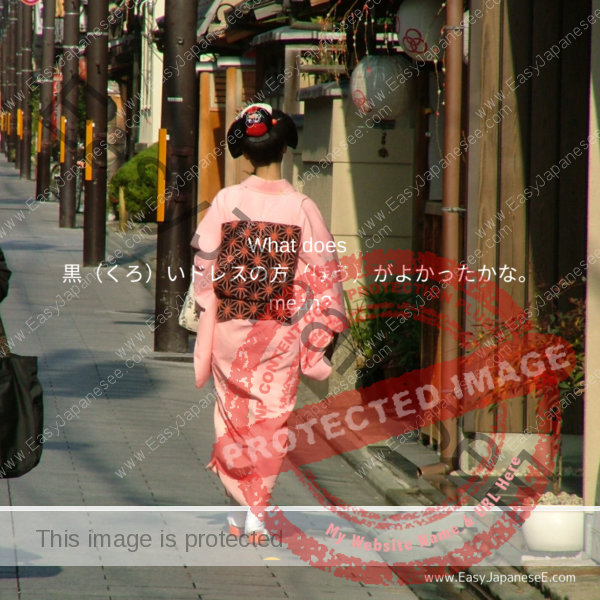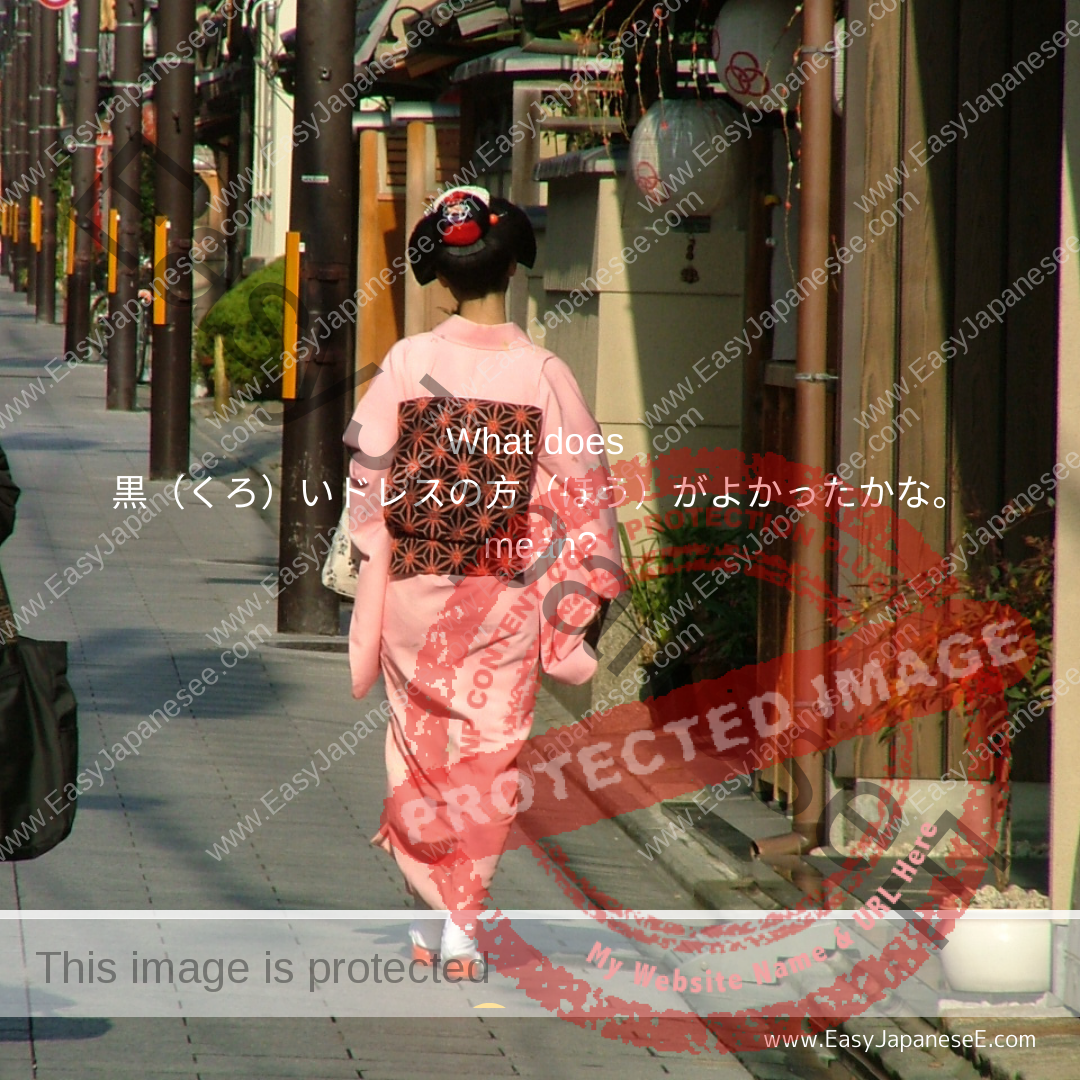
Today’s Grammar Point: ~方(ほう)がよかった
Connection
[noun] + のほうがよかった
[いadj] + ほうがよかった
[なadj] + なほうがよかった
[verb たform] + ほうがよかった (~ばよかった is more common)
[verb ないform] + ほうがよかった(~なければよかった is more common)
Explanation
~方(ほう)がよかった expresses:
- the speaker’s regret about his/her own choice in the past; or
- the speaker’s disappointment about somebody else’s choice in the past
As ~の方(ほう)が is an expression for comparison, ~方(ほう)がよかった is usually used for a wrong choice made while ~(なけれ)ばよかった can express a simple regret/disappointment.
Possible English Translation
… would have preferred ~ / … would have been better if ~ (not)
Examples
- サンドイッチの方がよかったね。
You would have preferred a sandwich, wouldn’t you? - 黒いドレスの方がよかったかな。
I wonder if I should have chosen a black dress. - 丸い方がよかったかな。
I wonder if it should have been round. - 冷たい方がよかったよ。
I would have preferred if it were cold! - 単純な方がよかったのに。
I would have preferred if it were simple. - 有名じゃない方がよかったのに。
I would have preferred if it weren’t famous. - おべんとうを持って行った方がよかった。⇒おべんとうを持って行けばよかった。
I should have brought lunch with me. - 現金で払った方がよかった。⇒現金で払えばよかった。
I should have paid in cash. - 大学に行った方がよかった。⇒大学に行けばよかった。
I should have gone to university. - あそこには行かない方がよかった。⇒あそこには行かなければよかった。
I shouldn’t have gone there. - あのキノコは食べない方がよかった。⇒あのキノコは食べなければよかった。
I/You shouldn’t have eaten that mushroom.
Related post
If you liked this post, please share it with your friends via your social media accounts. Your support will be appreciated!


One Reply to “~ほうがよかった”